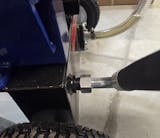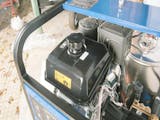Bilt Hard Concrete Calculator
Before starting any concrete project, accurately estimating the number of concrete bags you’ll need is essential. Our easy-to-use concrete calculator takes the guesswork out by providing a quick estimate based on your project’s size and thickness.
Using this tool helps you save both time and money! Make your next concrete job smooth, efficient, and cost-effective with just a few clicks!
The following concrete calculator is designed around the capacity of the Bilt Hard 4 Cu. Ft. Poly Drum Cement Mixer (SKU: TCA-0053), giving you precise estimates for your project needs.












BILT HARD 4 Cu. Ft. Poly Drum Cement Mixer – Portable & Heavy-Duty
Concrete Slab Calculator
Concrete Footing Calculator
Concrete Column Calculator
The following concrete calculator is designed around the capacity of the Bilt Hard 4 Cu. Ft. Electric Cement Mixer (SKU: TCA-0051), giving you precise estimates for your project needs.









BILT HARD 4 Cu. Ft. Electric Cement Mixer – Portable & Heavy-Duty
Concrete Slab Calculator
Concrete Footing Calculator
Concrete Column Calculator
FAQs
Built for performance, the BILT HARD Cement Mixer is perfect for mixing concrete, mortar, stucco, and even garden soil. Whether you're pouring a patio or setting fence posts, this mixer saves time and labor while boosting productivity.
Is the calculator suitable for both small DIY projects and large commercial jobs?
Yes, the calculator is designed to be versatile and user-friendly, making it suitable for both small DIY projects—like patios, walkways, or shed foundations—and larger commercial jobs such as driveways, building footings, or slab foundations. It provides accurate material estimates regardless of project scale, helping you plan efficiently and reduce waste.
Can the calculator account for reinforcements like rebar or mesh?
No, the calculator does not include reinforcements such as rebar or wire mesh in its estimates. These elements are essential for structural integrity in many projects but must be calculated separately based on your specific design, spacing requirements, and load conditions. Be sure to consult local building codes or a structural engineer for accurate reinforcement planning.
How thick should a concrete slab be?
Recommended slab thickness varies by use:
• Patios, walkways, shed floors: 4 inches
• Driveways, garage floors: 4 to 6 inches
• Heavy-duty or commercial floors: 6 inches or more, usually with reinforcement such as rebar or mesh.
How much does one cubic yard of concrete cost?
On average, one cubic yard of concrete costs between $125 and $150. However, the final price can vary based on several factors, including:
🔸Location – Urban areas or remote locations may have different pricing.
🔸Mix type – Specialized mixes with additives (e.g., fiber-reinforced or high-strength concrete) tend to cost more.
🔸Supplier and delivery – Some suppliers charge additional fees for delivery, short loads, or weekend service.
🔸Quantity ordered – Bulk orders may receive discounted rates.
How much does a concrete slab typically cost?
The cost of a concrete slab depends on several factors, including size, thickness, location, and whether you're doing the work yourself or hiring a contractor.
Here’s a general breakdown:
🔸Basic concrete slab (installed by a contractor):
Typically $4 to $8 per square foot.
This includes materials, labor, and basic site prep.
🔸DIY concrete slab (materials only):
Around $2 to $3 per square foot, depending on the concrete mix, thickness, and any additives used.
🔸Additional costs may apply for:
• Reinforcements like rebar or wire mesh
• Decorative finishes (stamping, staining, etc.)
• Site preparation (grading, gravel base)
• Formwork and edge treatments
• Complex shapes or custom designs
For example, a 10 ft x 10 ft slab (100 sq ft) would typically cost:
• $400 to $800 installed
• $200 to $300 for materials only if you're pouring it yourself
Always get quotes from local contractors and suppliers for the most accurate pricing based on your project's specifics.
How long should I mix concrete in a cement mixer?
Mix the concrete for about 3 to 5 minutes after all ingredients are loaded. Overmixing can dry out the mixture, while undermixing may lead to weak concrete. The ideal consistency should be smooth, uniform, and workable.
How do I clean a cement mixer after use?
Clean the mixer immediately after use:
🔸Rinse with water while running the drum.
🔸Scrub remaining residue with a stiff brush or chisel for dried material.
🔸For thorough cleaning, rotate with a mixture of gravel and water to knock off stuck-on cement.
How do I ensure safety when using a cement mixer?
🔸Always place the mixer on a level surface.
🔸Wear PPE such as gloves, goggles, and a dust mask.
🔸Never put hands inside the drum while it's rotating.
🔸Disconnect power before cleaning or servicing the machine.


































